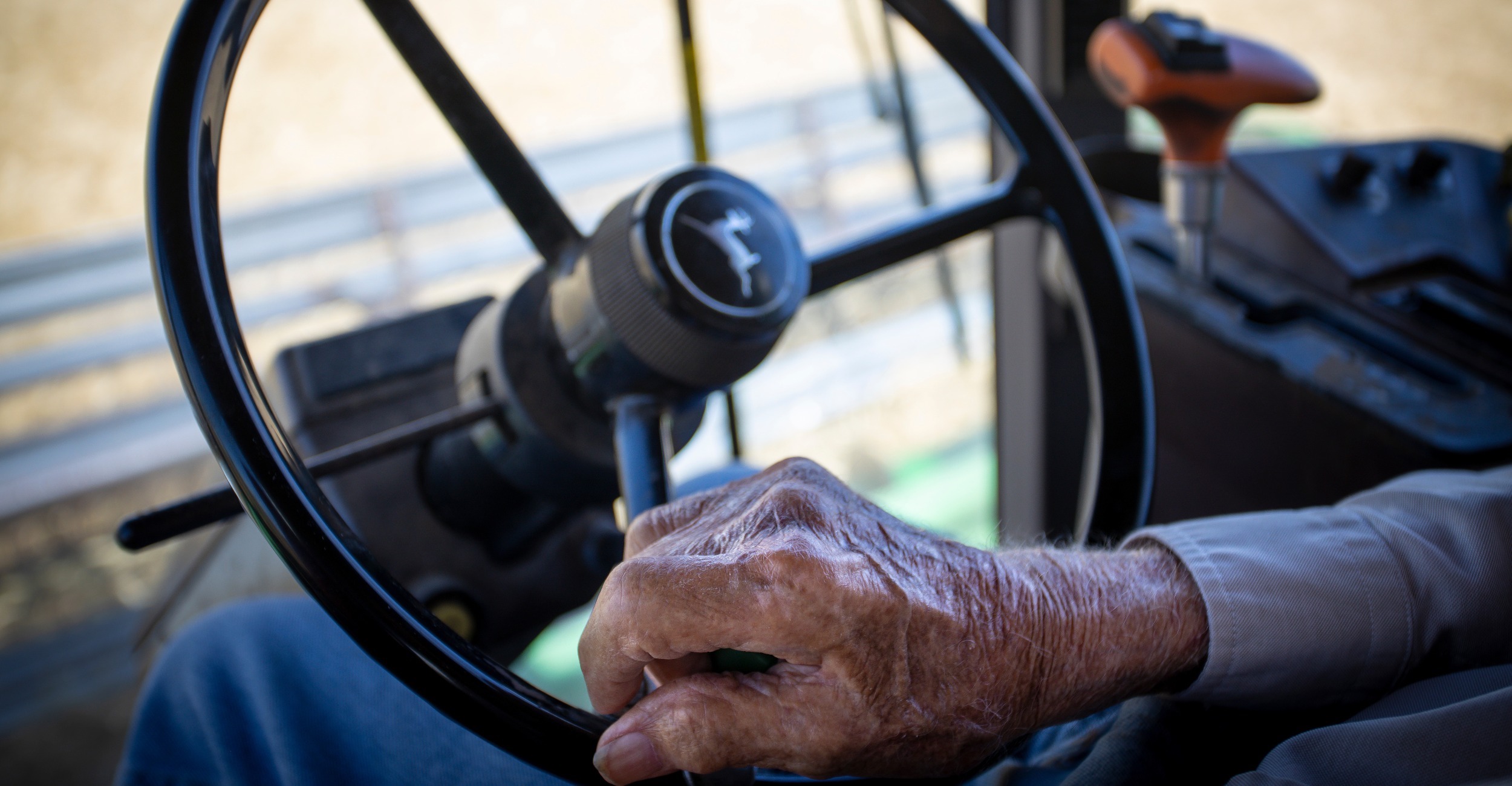
Heal the Harvester: Extension partners to address mental health challenges for farmers and ranchers
Tuesday, October 26, 2021
Media Contact: Gail Ellis | Communications Specialist, Copywriter | 620-515-2498 | gail.ellis@okstate.edu
In a profession that involves backbreaking labor, life-altering financial decisions and the favor of Mother Nature, farmers and ranchers are especially vulnerable to mental health issues.
The number of Oklahomans who struggle with a mental health condition such as anxiety or depression jumped 25% during the pandemic, according to the Oklahoma-based, nonpartisan Healthy Minds Policy Initiative. The initiative also reports the state’s rural suicide rate has increased 27% since 2017, compared with a 3% rise in urban areas. That’s why the Oklahoma Department of Agriculture, Food and Forestry requested help from the Oklahoma State University Center for Health Sciences and OSU Extension to develop Heal the Harvester, a Project ECHO line of assistance for rural Oklahomans. Hundreds of Project ECHO programs worldwide connect community providers with support specialists through virtual sessions on learning and mentorship. OSU’s Project ECHO offers several training courses on topics, such as addiction medicine and pediatric psychiatry.
Heal the Harvester launched in October to help increase awareness of needs and resources to support rural residents experiencing mental health crises. The training is funded through ODAFF and is based upon work supported by the National Institute of Food and Agriculture, U.S. Department of Agriculture. The $500,000 NIFA grant provides one year of funding for Heal the Harvester programming.
“Life in agriculture is sometimes tough and isolating,” said Oklahoma Secretary of Agriculture Blayne Arthur. “Producers are certainly some of the most resilient people, but natural disasters, disease, retailer demands, market uncertainties and misconceptions, and a seemingly growing list of other issues, wear on everyone.”
While OSU’s Project ECHO provides the management and information technology infrastructure for Heal the Harvester, OSU’s Jason Beaman facilitates video sessions on mental health education and consultation for Extension educators. Beaman is chair of psychiatry and behavioral sciences at OSU’s Center for Health Sciences and the executive director of training and education for OSU’s National Center for Wellness and Recovery.
“Extension educators interacting with farmers and ranchers on the ground is paramount,” he said. “When someone comes into a county Extension office with schizophrenia, or a rancher is going to lose his ranch because of alcohol disease, educators can offer information and support. We want to equip educators with the skills to do their daily jobs even better.”
The education segment of each biweekly video session involves a 15- to-20-minute lecture followed by designated time for Extension educators to discuss real cases of farmers or ranchers in need of mental health assistance. Beaman answers questions and directs educators to therapists, physicians and other mental health professionals.
Damona Doye, associate vice president of OSU Extension, said helping health care providers reach people in rural areas where access is limited is a blessing to many families. Educators naturally connect with farmers and ranchers, families and youth.
“Addressing mental health issues contributes to our mission of providing practical, research-informed knowledge for communities,” Doye said. “We’ve assisted in this educational area throughout my career, dating back to challenges experienced during the financial crisis. The pandemic has added to everyone’s stress, and we want to assist.”
Beaman has also conducted research that shows the opioid epidemic, often a factor in mental health struggles, has affected more residents and spread faster in rural counties than any other demographic.
“Farmers and ranchers have a strong work ethic that sometimes works against them,” Beaman said. “When they are injured and are instructed to take it easy, they take medication to work through the pain. Opioids block the pain the body uses to signal a need for rest.”
As Heal the Harvester progresses, Beaman plans to identify three county Extension offices that can offer telemedicine services. In addition to the program, Arthur said there are other resources available that also address the unique challenges of production agriculture.
“Reach out, check in, lighten a load, have a conversation with a friend,” Arthur said. “We are all in this together.”
More information about Heal the Harvester is available online.
